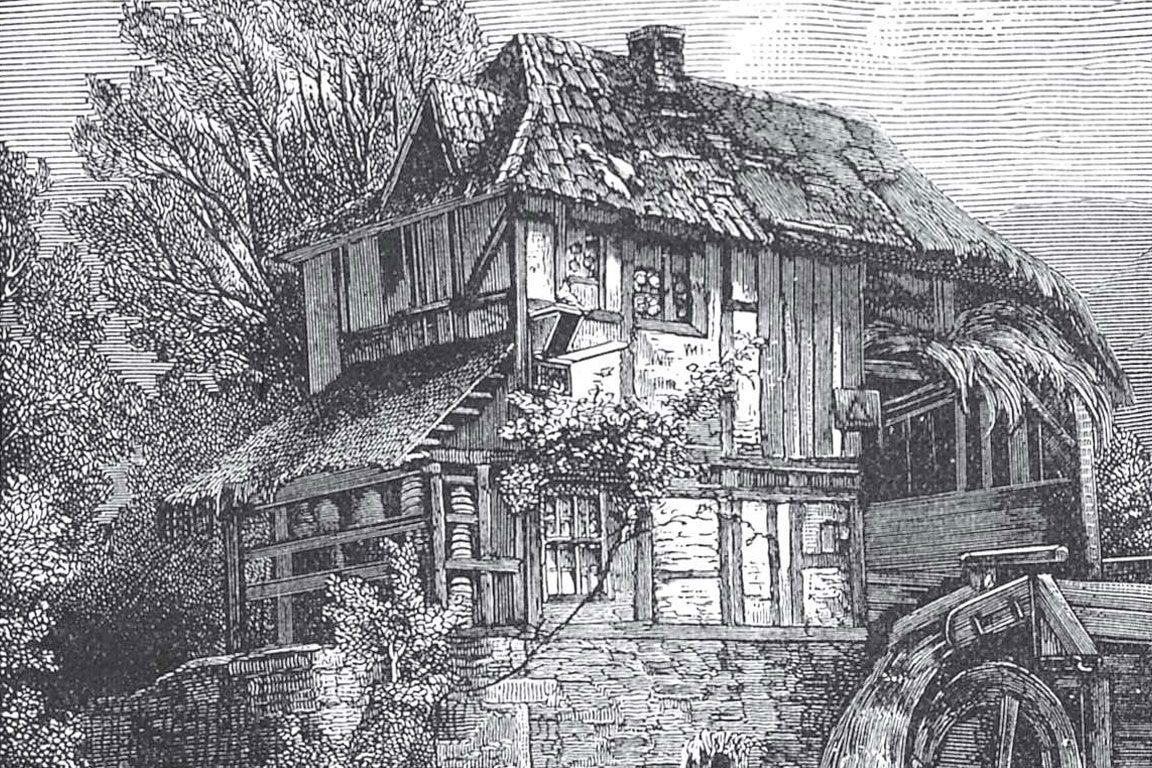





1. A young miller had just begun business in the old mill where his father had worked for many years. The farmers who lived near brought their grain there to be ground into flour, and gave the miller one-tenth of the grain as payment for his work. He was thus able to make enough to live comfortably, but, like many young men, he was eager to become rich.
2. Among his customers was a rich old farmer, who brought a load of grain to the mill every fortnight. One day when this farmer had left his load at the mill and gone away, the thought came into the miller´s head, “If I take a little more than a tenth, this rich man will never miss it. I know that other people do such things, and why should not I?”

3. He accordingly took a little more than a tenth, and put the extra grain into an empty barrel of his own. His conscience
 was not at ease, for he knew that he had done wrong; and yet he could not make up his mind to put the grain back again. Then another thought struck him. He saw a bag of grain standing near which belonged to a poor widow, and he said to himnone, “I shall take less than my tenth from this poor widow
was not at ease, for he knew that he had done wrong; and yet he could not make up his mind to put the grain back again. Then another thought struck him. He saw a bag of grain standing near which belonged to a poor widow, and he said to himnone, “I shall take less than my tenth from this poor widow
 , and that will make it all right. One should be kind to the poor.”
, and that will make it all right. One should be kind to the poor.”
4. The next time the farmer´s corn came to the mill, the miller again took more than his tenth. The same thing happened again and again, but he did not always remember to give anything away to the poor widow. And while his stock of stolen grain was steadily increasing, his peace of mind
 was as surely diminishing
was as surely diminishing
 .
.
5. He went to church as usual every Sunday, but he was always uneasy when he heard the words, “Thou shalt not steal.” He spent a good deal of his spare time over his weekly newspaper, while the water-wheel went steadily round and the mill-stones kept on grinding. But now he began to avoid looking at any reports of men being punished for dishonesty. When he passed the prison, he found himnone looking up at the windows, and wondering what the men in there were doing, and what the crime was for which they had been sent there.
6. At last the load on his mind became more than he could bear. He dared not go to the farmer and make a full confession
 , and yet he could not bear to keep the grain which he had taken dishonestly. What should he do with it? Then a plan came into his head which seemed to promise an escape from his misery.
, and yet he could not bear to keep the grain which he had taken dishonestly. What should he do with it? Then a plan came into his head which seemed to promise an escape from his misery.
7. The farmer still came to the mill every second week with his grain; which showed that he had not yet suspected anything. The miller made up his mind that he would take less than his tenth out of the next grinding. He would have liked to take none at all, but he feared that the farmer might notice a difference if the flour hreturned was of much more than the usual weight.
8. The miller therefore proposed to go on taking less and less grain out of the farmer´s load each time, until the whole of his dishonest gains had been restored
 . By this means he hoped to return to the farmer what he owed him, without confessing his dishonesty. So, with a lighter heart, he got down his account-books and reckoned up to the very last pound how much grain he owed the farmer.
. By this means he hoped to return to the farmer what he owed him, without confessing his dishonesty. So, with a lighter heart, he got down his account-books and reckoned up to the very last pound how much grain he owed the farmer.
WORD SPELLING

WORD EXERCISE
1. Write out the nouns in the lesson ending in -er, and give their meanings so as to show the force of the termination.
2. Give the meanings of the compound words fortnight, Sunday, newspaper, water-wheel, mill-stone, and of their parts.
3. Write out a few verbs like grind, ground, which change the stem-vowel i into ou in the past.